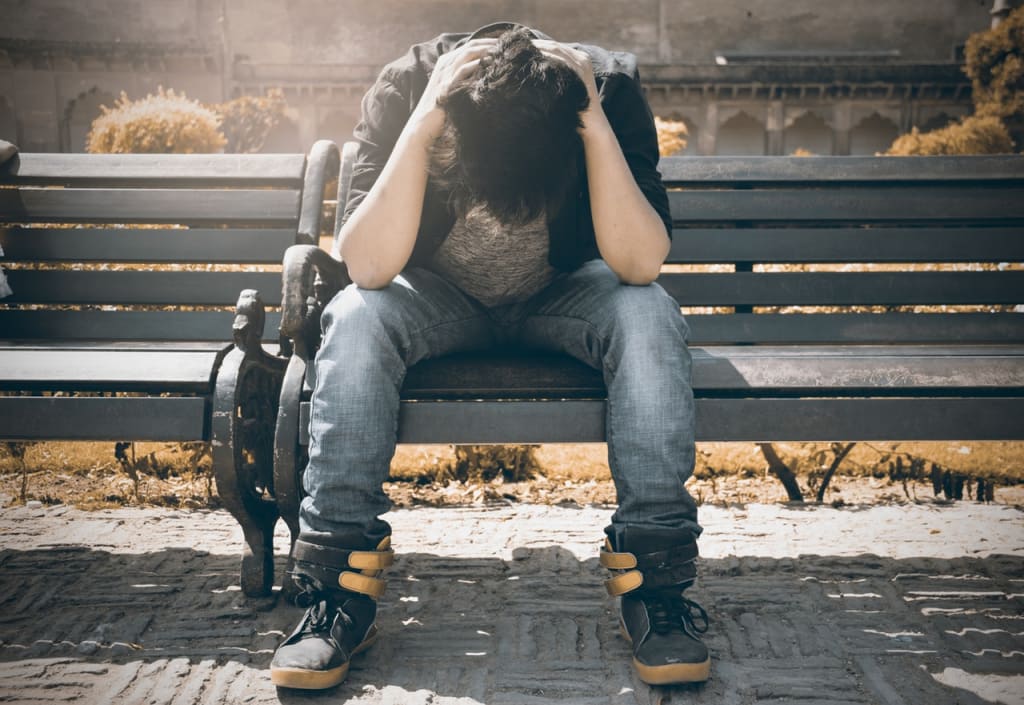5 Tips for Being a Good Friend With Someone With PTSD
Being there for your friends who are dealing with post-traumatic stress disorder

Full disclosure: I do not have a post-traumatic stress injury or post-traumatic stress disorder (PTSD).
What I do have, however, are a lot of friends dealing with this serious set of sometimes debilitating symptoms. I do not pretend to know what it is like to live with this somewhat hidden disorder, but through the years I have utilized 5 guiding principles that have helped me be a better friend to those dealing with post-traumatic stress.
Tip #1 Don’t judge!
This seems like it should be self-explanatory. But for some reason it isn’t. Judging in and of itself is not a bad thing—it is a necessary element for humans to navigate decision-making. Learning that the stove is hot as an infant by accidentally touching it influences any further decisions to touch the stove again. Judgment, although necessary and ingrained in us from an early age, doesn’t always serve us, however.
When it comes to mental health, stigma is still alive and flourishing. A topic we don’t talk about very much is self-stigmatization. I think the self-stigmatization my friends with PTSD have about themselves is more of a predator than any judgment from outside sources.
Shame, guilt and embarrassment about a public flashback or an auditory hallucination can feel devastating to the person experiencing it, however, if it happens to a friend of mine, it is no big deal to me.
Shame, a useless emotion in my opinion, can prevent someone from going out, hanging out with friends, or enjoying activities they once did.
Sometimes you truly don’t agree with a decision your friend makes and you feel compelled to weigh in. Remember, this is not your life! And while it is okay to make a suggestion, remember to be very cautious how you frame your message, scrubbing any inkling of blame or belittlemen; it is never okay to judge. This is not your life. Know your friend’s boundaries and respect them!
People have a post-traumatic stress injury because they have been exposed to trauma. What they really need is support—not more trauma.
Tip # 2 Never belittle your friend’s trauma or compare their trauma to someone else’s
Trauma is relative. A hundred people could be involved in the same traumatic event and statistically only twenty people will develop PTSD according to The Recovery Village Website. Whether someone develops a disorder beyond just a trauma reaction is impossible to predict.
So never, ever tell your friend with PTSD something like: “So-and-so experienced the same thing you did, and she doesn’t have PTSD.” It is even worse if you compare someone’s trauma to someone else’s: “So-and-so went through something way worse. Why do you have PTSD?”
It is degrading and questions the authenticity of your friend. Not cool. Period.
PTSD can create physiological changes to the brain in the amygdala, hippocampus, and prefrontal cortex. This isn’t just a disorder that affects the mind; it affects the brain!

Tip #3 Be patient
In my experience, sometimes people with PTSD isolate or cancel plans. Don’t assume they are doing this as a slight to you. They might simply be trying to cope or maybe you caught them on a day where they are barely getting by. Maybe they are fighting depression, suicidal ideation, noise sensitivity, loss of energy and/or purpose or are exhausted from terrible nightmares.
I will say "I have a migraine" or "I'm sure I have the flu," so that people don't worry—so that is seems like I just have a "normal" sickness.
- Natalie Harris, Save-My-Life School
Never take what you may perceive as a rejection personally. You can gently ask why a person isn’t able to meet their commitment, but respect boundaries. And here is the second part to this tip: Don’t stop asking.
Sometimes it can become a vicious circle: The isolation and inability to follow-through cause friends to simply stop asking. This produces deeper isolation, causing more failed commitments, spiraling the whole negative circle into a self-fulfilling prophesy.
Bottomline, balance respect boundaries but never give up completely. One day, they might be in a place to say yes.

Tip #4 Educate yourself on the symptoms of PTSD
Educate yourself on the symptoms. PTSD doesn’t look the same for everyone. A person doesn’t have to have all of the following to have PTSD, however, here are some common symptoms:
Involuntary and intrusive distressing memories that just appear without an obvious cue
Intrusive nightmares
Dissociation and flashbacks
Emotional distress triggered from events or places that remind the person of the original trauma
Physiological responses to memories of the traumatic events
Avoidance of distressing thought and memories associated with trauma such as people, places, activities, objects, conversations etc.
Loss of memory surrounding the trauma
Strong negative beliefs about oneself or the world
Self-blame for causing the traumatic events
Exaggerated fear, anger, guilt or shame
Lack of interest in participating in activities that used to excite.
Strong feelings of detachment or estrangement from friends and family
Inability to experience positive emotions
Irritable and/or aggressive behaviour
Difficulty sleeping
Recklessness
Hypervigilance
Concentration problems
Exaggerated startle response
Not exactly a picnic! Depending upon the depth of your friendship, you might also want to find out the symptoms that are specific to your friend. Be cautioned, however, depending upon how far into recovery your friend is, talking about the trauma that got them there may or may not be healthy. Leave those topics to the experts in the field. Let your friend know you are willing to listen but never press!
Some people are addicted to the trauma porn that media often uses to deeply engage audience with the element of shock. We get so desensitized that we might not think twice about asking a paramedic to tell us about their most gruesome call. Not only is this rude, it can be very unhealthy for the person with whom you are talking. Keep in mind you are talking to a human being and not to a profession!
Tip #5 Read their behavior, not just their words
People who live with mental illness become experts at wearing an emotional mask. Because of stigma, people are not always eager to make themselves vulnerable about how they are really feeling.
"Are you okay?"
I hesitate because I want to say, "No. No. I'm not okay." Instead I reply, "Yep. I'm fine."
- Matthew Heneghan, A Medic's Mind
As a friend, this means not only listening to what your friend says but paying attention to nonverbal cues and behavioral patterns. If a text seems out of character or there is a shift in behavior, it might be a good time to remind your friend that you are there for them or to simply check in. Letting someone know they aren’t alone might make all the difference.
Most of the time, all your friend might need is a kind, listening ear. However, if you ever feel that your friend is in danger or might self-harm, make sure to call your local emergency services. Not sure what signs to look for? The Cleveland Clinic has a great website explaining how to spot self-harm behaviour.
People with PTSD,or any mental illness for that matter, have so much to offer. Some of my best friends have a mental illness diagnosis. Being friends with someone with a mental illness is as easy as being friends with someone with a broken leg! Illness is illness. And just like you wouldn’t ask your friend with the broken leg to run a marathon with you, you might have to be cognizant of your expectations with someone with a mental illness. Educating and knowing their rhythms will make it a positive experience for both of you!
*Please note: I am not a healthcare professional. These ideas are for educational purposes only and not a substitute for mental health advice. If you or someone you know is in crises, please contact your local emergency services. Here is a link to Wikipedia's page of crises lines.
If you would like to know more about what it is like to have PTSD, these two memoirs paint the absolute best picture:
A Medic’s Mind by Matthew Heneghan and
Save-My-Life School by Natalie Harris.
About the Creator
Heather Down
I am an observer of life through the lens of middle age. Owner of an independent publishing house and a published author, I spend my time obsessing about all things communication. Follow me at Wintertickle Press.






Comments
There are no comments for this story
Be the first to respond and start the conversation.